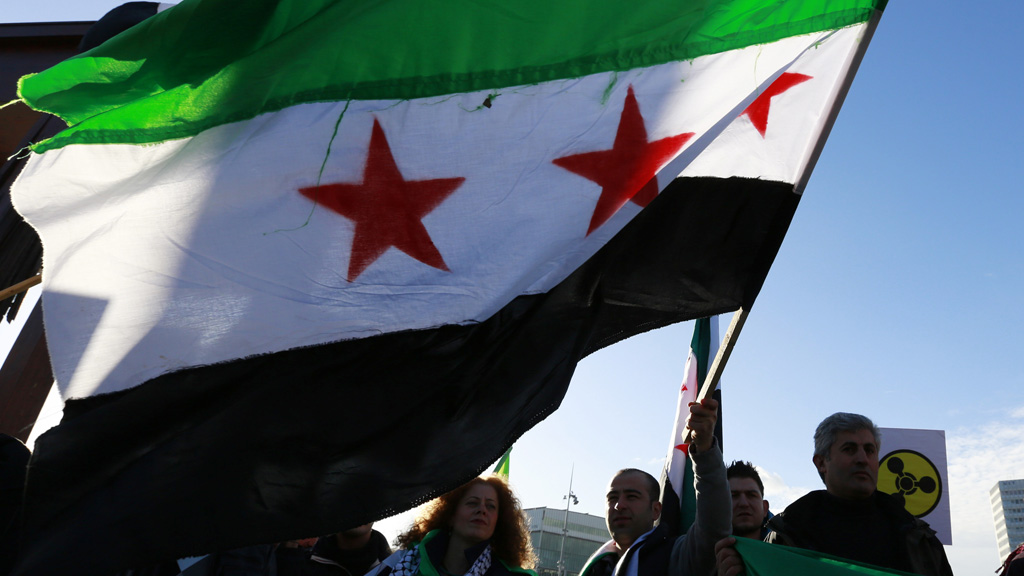Syria government and opposition begin face to face talks
The UN says that both sides will negotiate face to face in Geneva for the first time on Saturday, just hours after the regime threatened to walk out, writes Sakhr Al-Makhadhi from Geneva.

After two days of shuttling between nearby rooms, UN envoy Lakhdar Brahimi says that delegations from the Syrian government and opposition will today talk face to face for the first time, writes Sakhr Al-Makhadhi.
The direct talks were expected to begin yesterday. But the opposition refused to sit in the same room as their foes until the government agreed in writing to the Geneva I communique. That document, put together in 2012, sets out the basis for a transitional government.
By lunchtime yesterday, the regime’s team was threatening to walk out in frustration unless the Syrian opposition coalition started to take the negotiations “seriously”.
Despite a fraught start, Brahimi insists that the talks are back on track. “We will be working on Saturday, we will be working on Sunday,” he said. “Nobody will be leaving on Saturday and no one will be leaving on Sunday.”
Read more: Syria peace - the challenges of Geneva II
Low expectations
Just getting both sides to Geneva is an achievement. Until last weekend it wasn’t clear that the opposition was going to take part in the talks. They only won a vote among their members when an anti-negotiation bloc in the coalition walked out. On Monday, the opposition threatened to boycott the negotiations unless Iran’s invitation was rescinded.
Rarely have peace talks begun with such low expectations. The process started with an international summit and a series of set-piece speeches on Wednesday. Syrian Foreign Minister Walid al-Moualem used the forum to call his opponents “terrorists”. A day later, the opposition said the regime of President Bashar al-Assad was “dead”.
We’ve gone into this with our eyes wide open. We know it’s not going to be easy. Lakhdar Brahimi, UN envoy
Brahimi is aware of the scale of the challenge facing him. “We’ve gone into this with our eyes wide open. We know it’s not going to be easy,” he said. “The huge ambition of this process is to save Syria, no less than that. I think that the two parties understand what is at stake.
“I hope that the government, the opposition and the United Nations will be up to the task. Wish us luck.”
‘Bumps on the road’
The reason for the animosity is because of one man: Syrian President Bashar al-Assad. The opposition won’t accept any deal that keeps him in power. The government is refusing to even entertain the suggestion that he will leave office.
While agreement on the future of Syria’s leader seems unlikely, Brahimi is hopeful that there could be a prisoner exchange as well as promises of greater access to some of the areas currently besieged by the regime.
“The discussions I had with the two parties were encouraging and we are looking forward to our meetings tomorrow morning and tomorrow afternoon,” he said.
Despite yesterday’s threat of a government walkout, the anti-Assad coalition says it has no plans to leave. Burhan Ghalioun, a former leader of the opposition, said they would stay in Geneva “until the demands of the Syrian people are met”.
“We do expect some bumps on the road,” Brahimi said. “It is impossible that there aren’t any.
“I’m worried all the time, but I think we’re alright, I hope it will be a good beginning and that we will continue until the end of next week.”
But with both sides talking over each other’s heads and betting on a battlefield victory, a peace deal in Geneva seems like a distant prospect.
Sakhr Al-Makhadhi is a journalist and editor